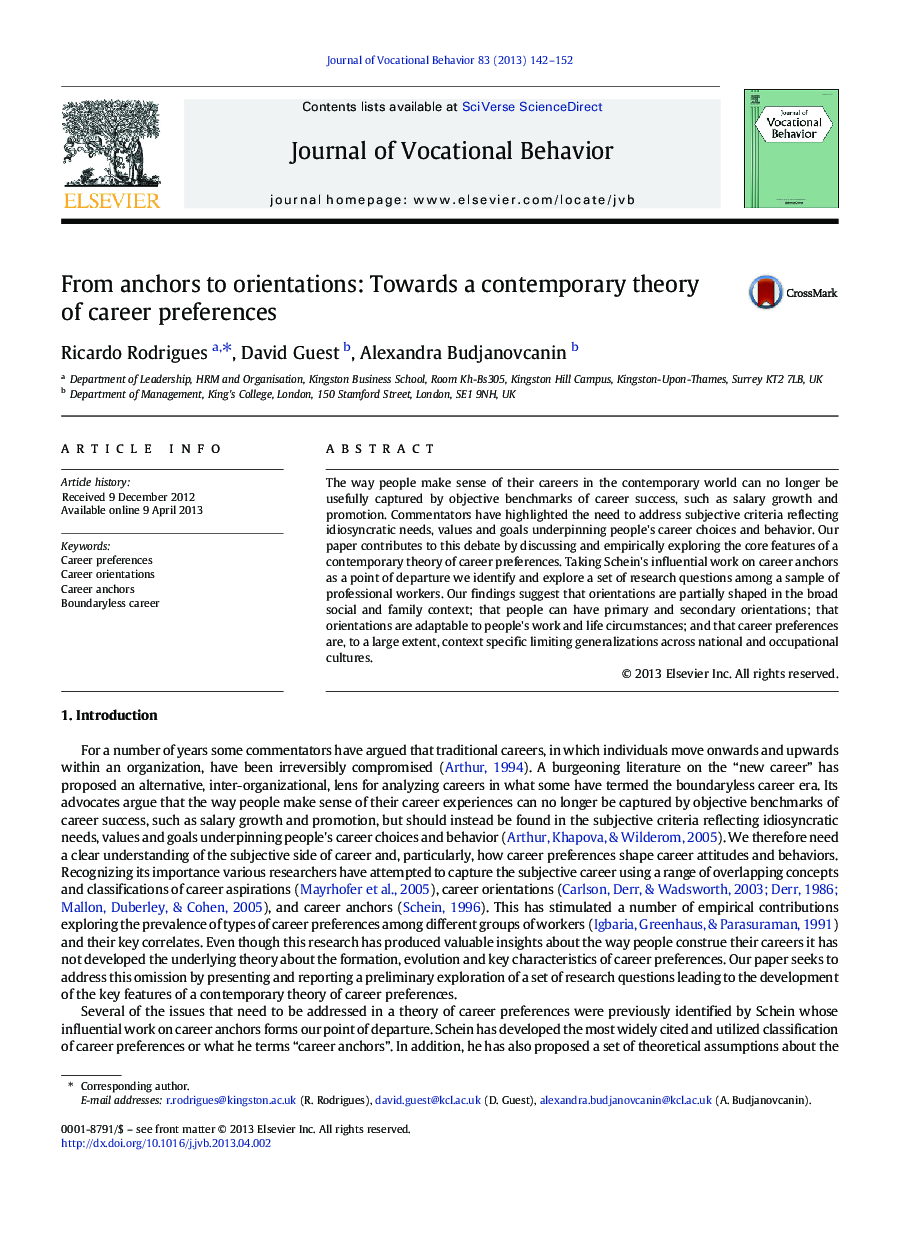| Article ID | Journal | Published Year | Pages | File Type |
|---|---|---|---|---|
| 886879 | Journal of Vocational Behavior | 2013 | 11 Pages |
•We propose a contemporary theory of career preferences.•Research questions are identified and empirically explored among professionals.•Orientations are context specific and partially shaped in the broad social context.•People can have primary and secondary orientations.•Orientations are adaptable to people's work and life circumstances.
The way people make sense of their careers in the contemporary world can no longer be usefully captured by objective benchmarks of career success, such as salary growth and promotion. Commentators have highlighted the need to address subjective criteria reflecting idiosyncratic needs, values and goals underpinning people's career choices and behavior. Our paper contributes to this debate by discussing and empirically exploring the core features of a contemporary theory of career preferences. Taking Schein's influential work on career anchors as a point of departure we identify and explore a set of research questions among a sample of professional workers. Our findings suggest that orientations are partially shaped in the broad social and family context; that people can have primary and secondary orientations; that orientations are adaptable to people's work and life circumstances; and that career preferences are, to a large extent, context specific limiting generalizations across national and occupational cultures.
